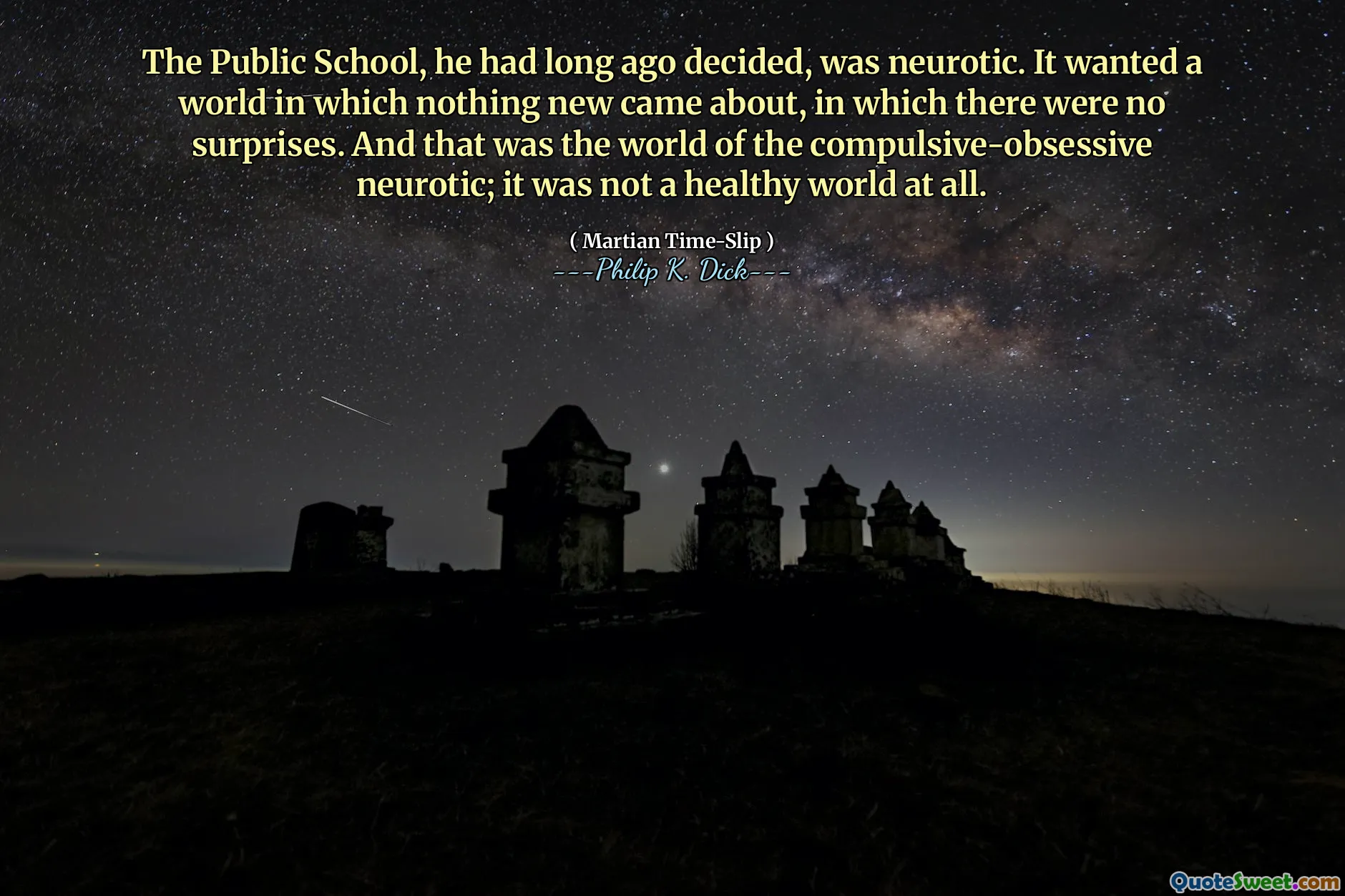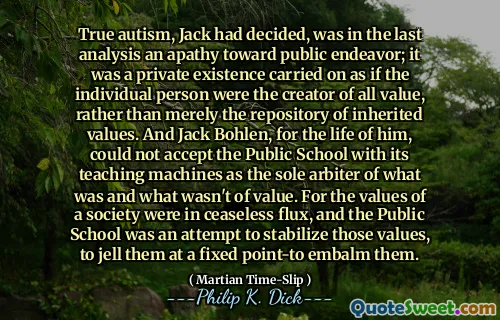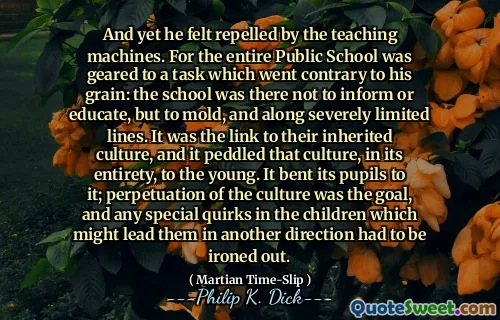
The Public School, he had long ago decided, was neurotic. It wanted a world in which nothing new came about, in which there were no surprises. And that was the world of the compulsive-obsessive neurotic; it was not a healthy world at all.
In "Martian Time-Slip," Philip K. Dick presents a critical view of the public education system, suggesting it embodies a neurotic desire for stability and predictability. The system seeks a reality where innovation and unexpected developments are avoided, reflecting the mindset of compulsive-obsessive behavior. This critique implies that such an environment is detrimental to healthy human development.
By portraying the public school as a manifestation of neurotic tendencies, Dick challenges the traditional values associated with education. He suggests that an emphasis on control and familiarity stifles creativity and the organic growth of ideas, essential for a vibrant society. The portrayal prompts readers to reconsider the impacts of rigid educational structures on personal and social progress.











